
How Building Resilience Helps Overcome Setbacks in Recovery
Introduction: The Power of Resilience in Recovery
Resilience, the innate ability to bounce back from adversity, plays a pivotal role in addiction recovery. It's more than just coping; resilience empowers individuals to adapt and thrive despite challenges. In the recovery journey, setbacks are inevitable but not insurmountable. Understanding and cultivating resilience can foster a mindset that views obstacles as opportunities for growth, leading to sustained sobriety and emotional well-being.
Understanding Resilience and Its Role in Recovery
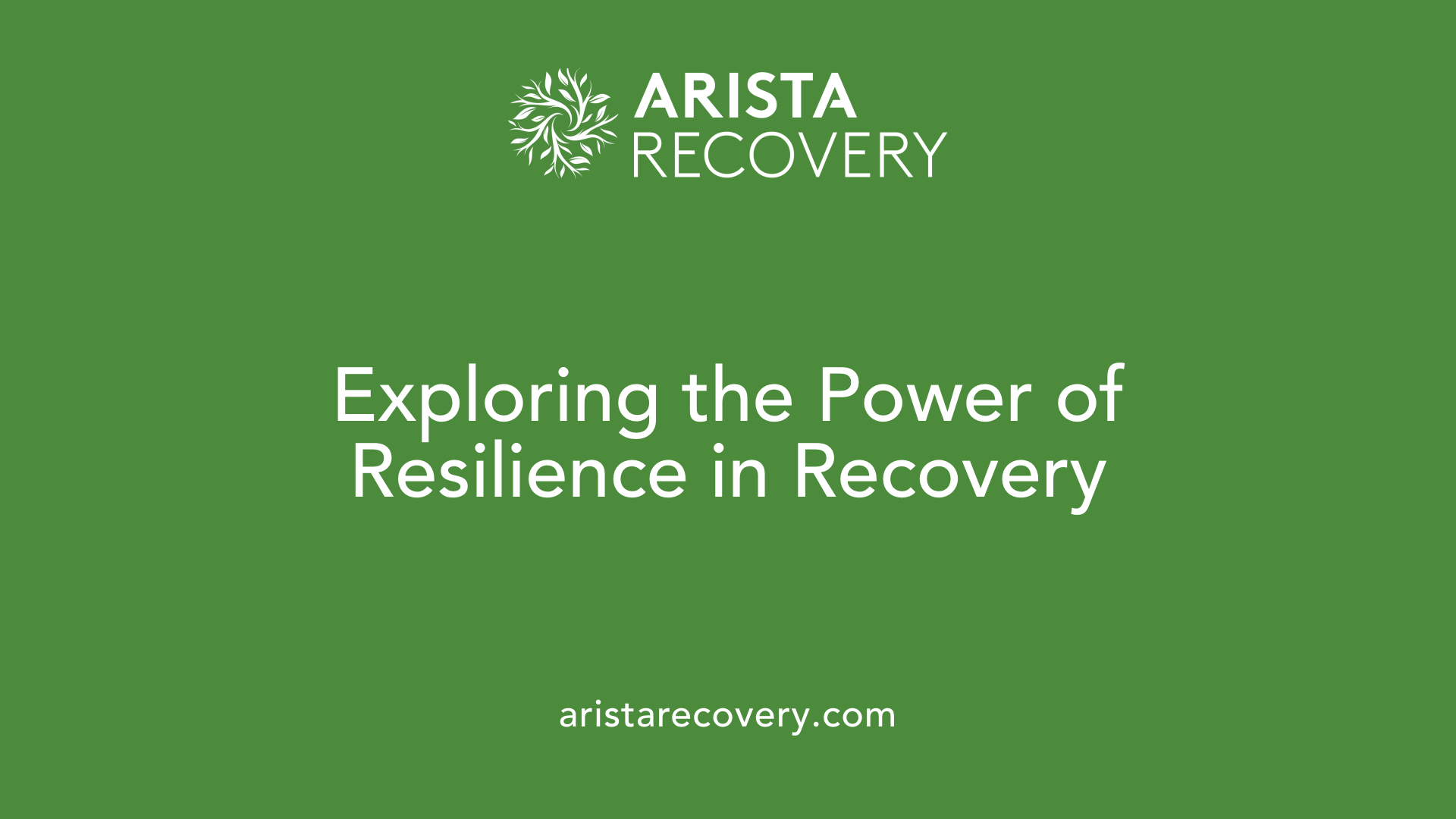
What is resilience and why is it important in recovery?
Resilience is defined as the ability to adapt well in the face of adversity, trauma, and significant stress. It allows individuals to cope with difficult events and move forward both physically and psychologically. In the context of addiction recovery, resilience plays a pivotal role.
Resilient individuals are better equipped to handle setbacks, such as cravings or emotional turmoil, viewing these obstacles as opportunities for growth rather than failures. This mindset enables them to regroup and persist despite the unexpected challenges that arise during recovery. By reflecting on past experiences and learning from them, individuals can enhance their ability to adapt and manage future challenges more effectively.
Moreover, cultivating resilience involves establishing a strong support system, which may include friends, family, and recovery groups. These social connections provide essential emotional and practical support, reducing feelings of isolation. Additionally, self-care practices like maintaining a balanced diet, exercising regularly, and prioritizing sufficient sleep are critical for building resilience. Ultimately, the more resilience individuals develop, the more robust their journey through recovery becomes, leading to sustainable outcomes over the long term.
How Resilience Mitigates Challenges and Setbacks in Recovery
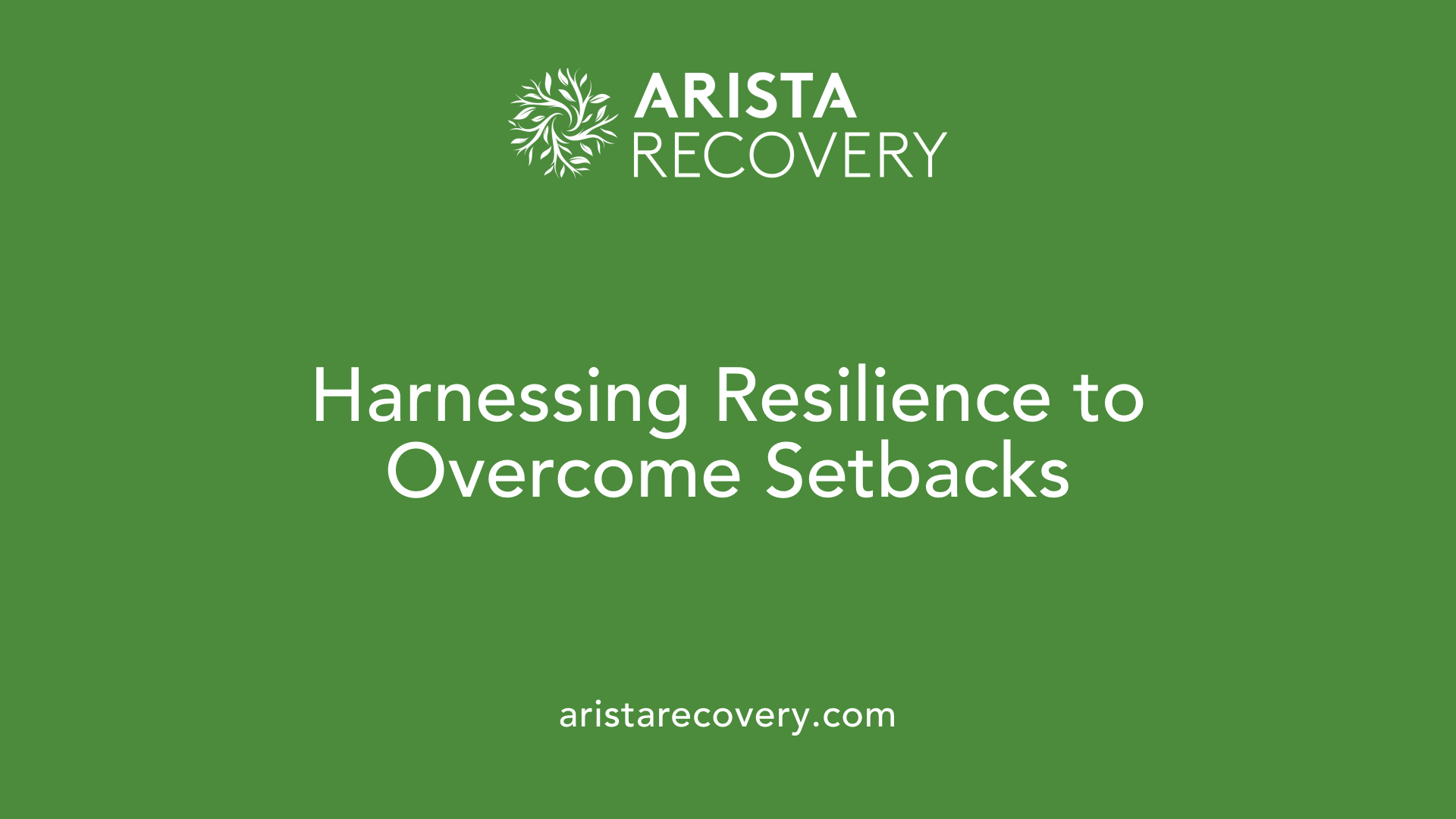
How does resilience help you overcome challenges and setbacks?
Resilience is a vital attribute for individuals navigating early recovery from addiction. It empowers them to bounce back from difficulties, such as low self-esteem and cravings, and adapt positively to life’s trials. By fostering resilience, individuals can better manage emotional pain while continuing their journey toward sobriety.
When facing setbacks, those with resilience view obstacles as opportunities for growth instead of failures. They learn to harness their inner strength to tackle job loss, health issues, or grief. This mindset not only aids in stress management but also reduces the likelihood of turning to unhealthy coping strategies like substance use.
The role of psychological resilience during recovery setbacks
Psychological resilience acts as a shield against the weight of setbacks. It encourages individuals to acknowledge their emotional struggles without becoming overwhelmed. This approach helps them maintain perspective and focus on constructive responses, paving the way for sustained recovery even during challenging times.
Resilient individuals often have effective coping mechanisms, such as mindfulness and journaling, to manage stress. By reflecting on their experiences and emotions, they cultivate a growth mindset — viewing challenges as part of the recovery process.
Building strong relationships
Strong social networks significantly bolster resilience. Engaging with supportive friends, family, and recovery groups provides emotional backing that reinforces one’s coping capabilities. These trusted connections become essential during moments of weakness, offering encouragement and reducing feelings of isolation.
Being part of a recovery community, like Alcoholics Anonymous, creates shared experiences that foster inspiration and understanding. Together, individuals can share their struggles and triumphs, reinforcing their collective resilience.
In summary, resilience is not just about bouncing back; it’s about building the skills that enable individuals to navigate the complexities of recovery with grace and determination.
Practical Strategies to Build Resilience during Recovery
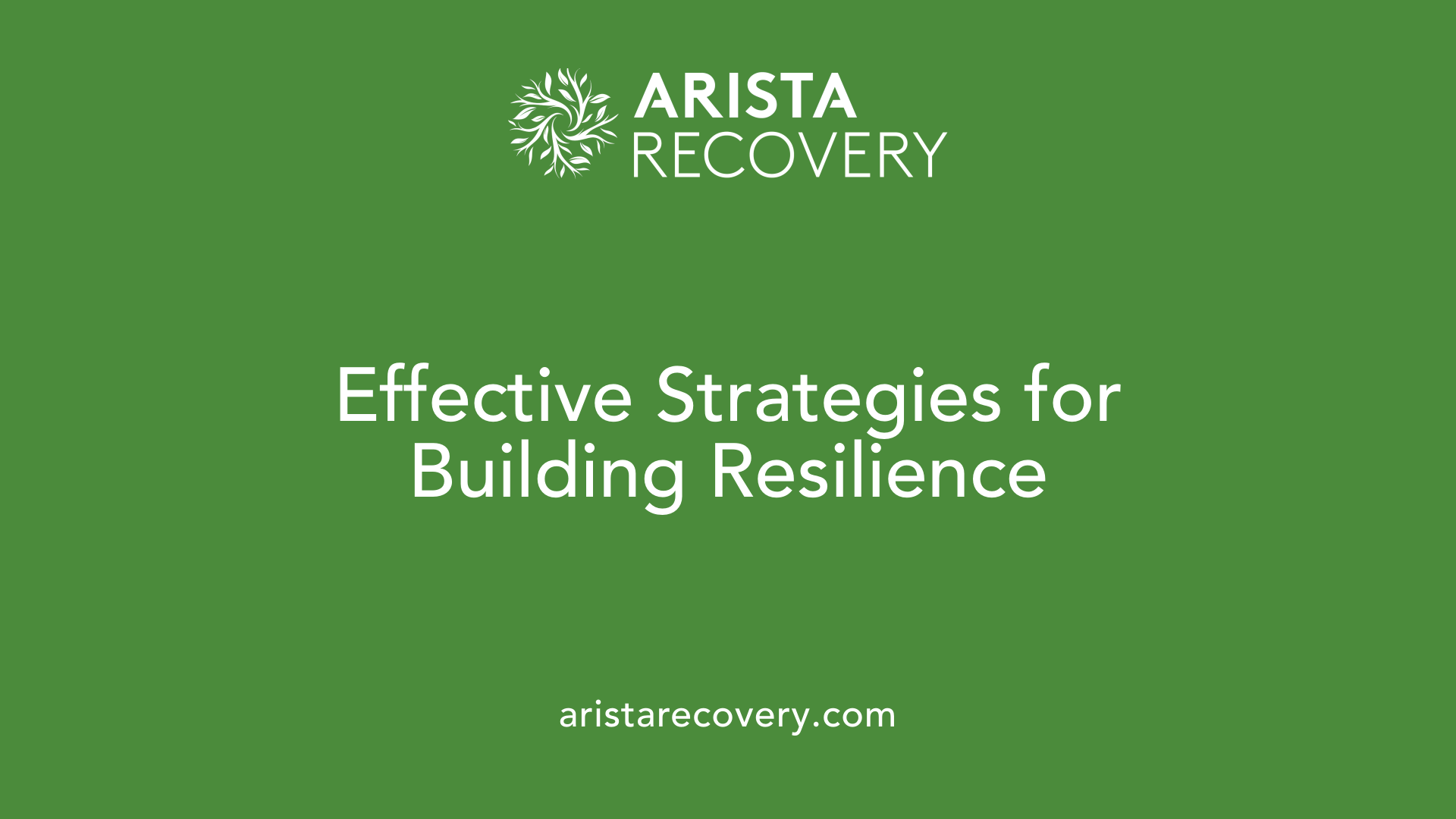
What are some effective strategies to build resilience during recovery?
Building resilience during recovery is essential for mastering challenges and fostering personal growth. Here are some effective strategies that can help:
Goal Setting and Personal Growth: Establishing small, realistic goals helps individuals maintain focus and achieve a sense of accomplishment. These goals should be tangible and broken down into manageable steps to enhance motivation.
Importance of a Positive Mindset: Cultivating a positive outlook is crucial. Viewing challenges as opportunities for growth lowers stress levels and encourages better emotional regulation. Incorporating positive self-talk and recognizing personal achievements can further strengthen resilience.
Role of Support Systems: Leveraging strong support networks is vital. Engaging with friends, family, and support groups fosters a sense of belonging and provides emotional encouragement during tough moments. Regular communication within these networks can significantly alleviate feelings of isolation.
Maintaining perspective is also critical; practicing mindfulness can help individuals stay grounded and less overwhelmed by stress. By focusing on what can be controlled, recovering individuals enhance their resilience, ensuring better adaptation in the face of adversity.
The Impact of Emotional Support and Self-Care on Resilience
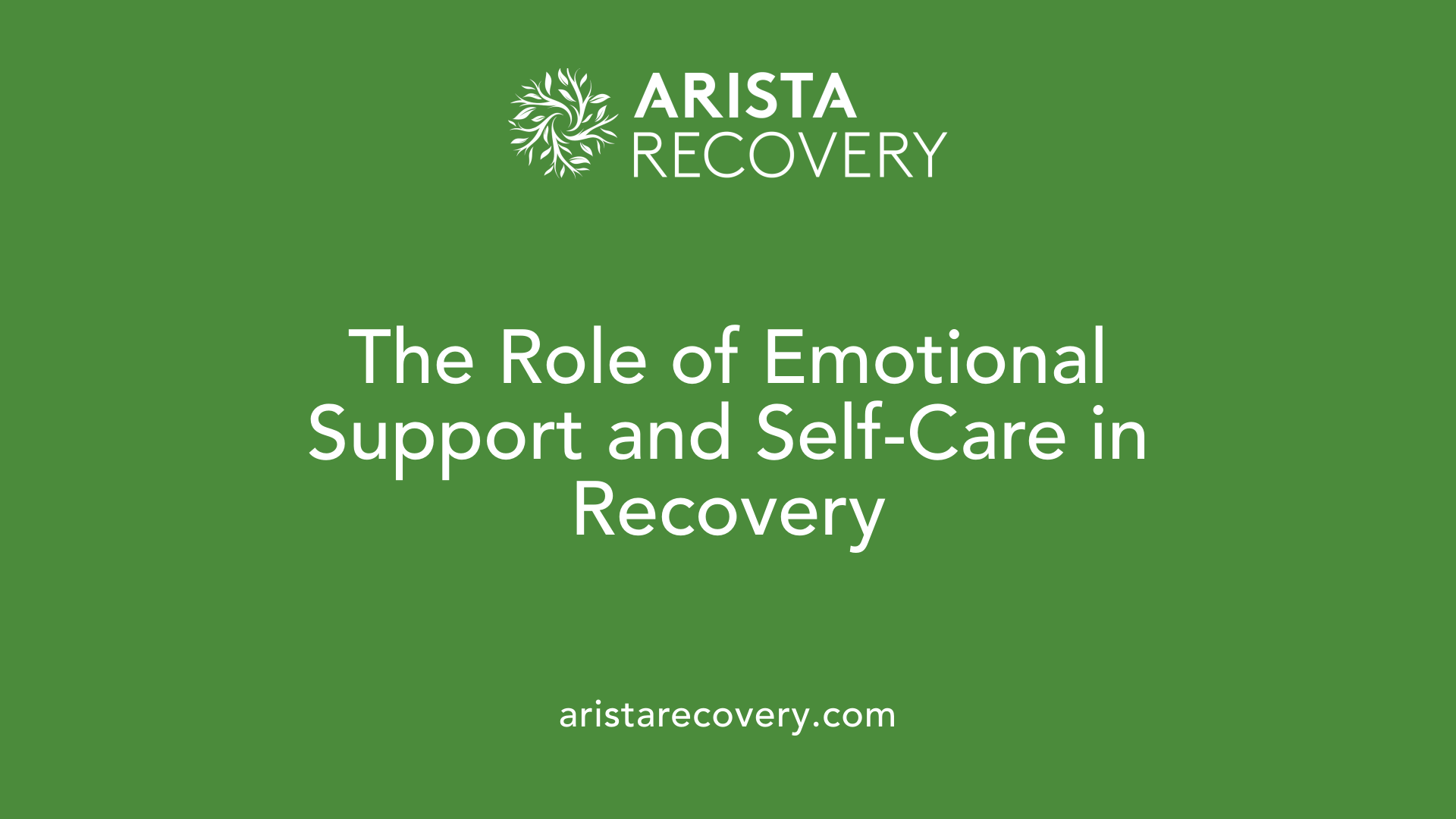
How can emotional support and self-care enhance resilience in recovery?
Emotional support and self-care serve as crucial elements that significantly enhance resilience during recovery. Building strong relationships with friends, family, and support groups, such as Alcoholics Anonymous, provides individuals with essential emotional resources. This social support mitigates feelings of isolation and fosters a sense of belonging, enabling individuals to navigate challenges more effectively.
Practices to enhance emotional support
- Open Communication: Sharing feelings and progress with trustable individuals can lighten emotional burdens.
- Active Listening: Engaging with peers in recovery meetings can provide mutual understanding and encouragement.
- Group Therapy: Participating in group settings fosters accountability and shared experiences, enhancing the support network.
Self-care as a foundation for resilience
Self-care practices are essential for maintaining both physical and mental health, laying a strong foundation for resilience. Prioritizing activities like mindfulness meditation, engaging in regular exercise, maintaining a balanced diet, and ensuring adequate sleep are foundational. These practices not only boost energy levels but also enhance emotional regulation.
Building strong social connections
Cultivating strong social connections is key to resilience. Emotional connections create a safety net during difficult times, as supportive relationships contribute to a sense of belonging and well-being. Utilizing community resources, seeking professional help, and participating in recovery groups further enrich emotional support, nourishing the resilience required to overcome obstacles in addiction recovery.
Ultimately, a consistent self-care routine combined with emotional support fosters a robust foundation for individuals facing the challenges of recovery, reinforcing their capacity to cope with adversity and promoting long-term healing.
Interconnection of Resilience, Emotional Intelligence, and Social Support
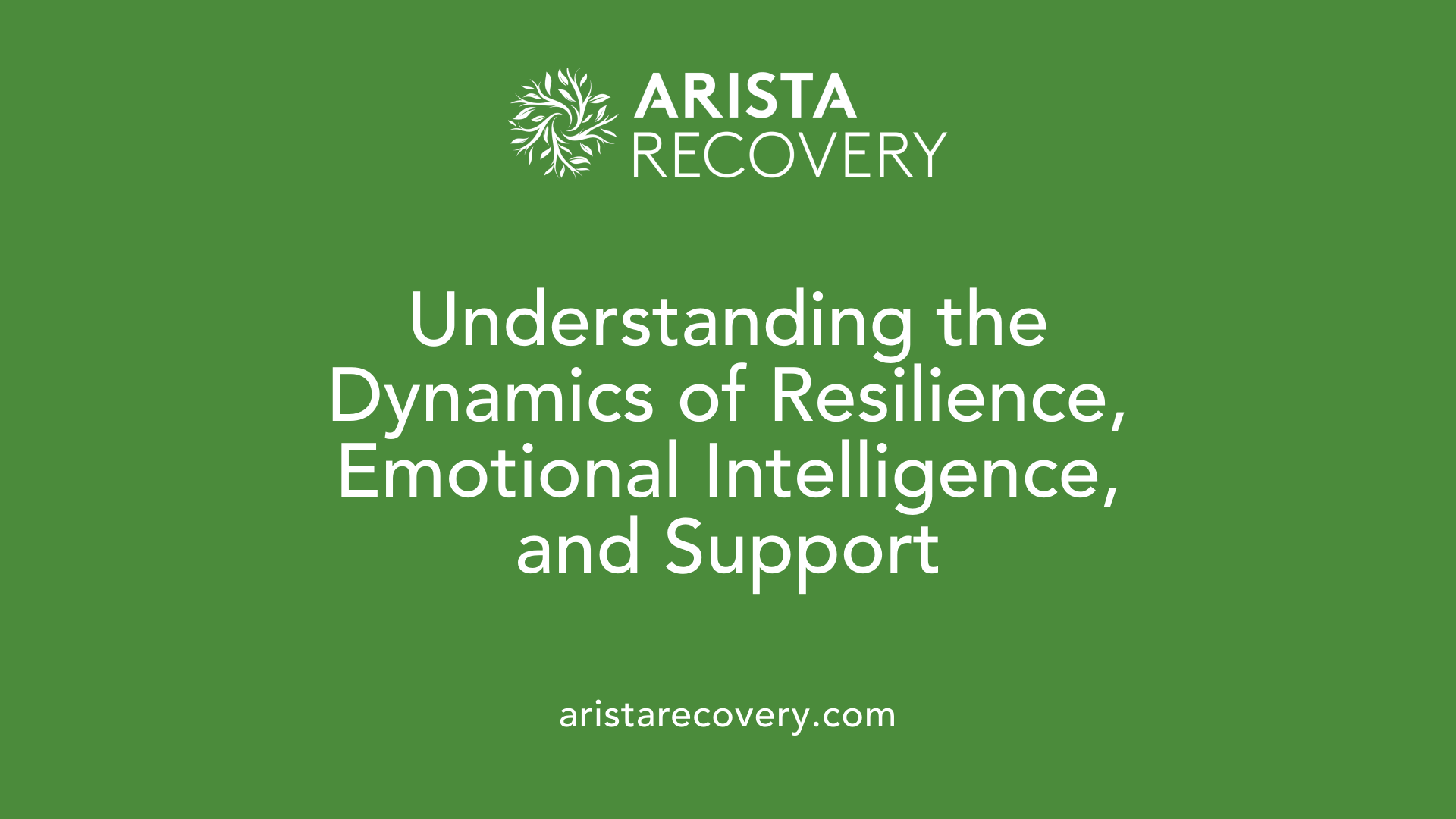
What is the relationship between resilience, emotional intelligence, and social support in recovery?
The relationship between resilience, emotional intelligence, and social support in recovery is complex and interdependent. Resilience is forged through various coping strategies, enabling individuals to bounce back from setbacks and challenges.
Role of emotional intelligence in building resilience
Emotional intelligence plays a vital role in this process. It empowers individuals to recognize and manage both their own emotions and those of others. This skill is crucial for establishing supportive relationships that enhance resilience. With a greater emotional awareness, individuals can approach stressful situations more effectively, viewing them as learning opportunities rather than insurmountable obstacles.
Importance of social support networks
Social support networks complement emotional intelligence by providing necessary encouragement during tough times. Friends, family, and peer groups offer not only emotional backing but also practical advice that can reinforce an individual's ability to manage stressors. This support acts as a crucial buffer against the feelings of isolation and hopelessness often encountered in recovery.
Synergy between resilience and emotional intelligence
Together, these elements create a synergistic effect. The interplay of resilience and emotional intelligence fosters a holistic approach to recovery, providing individuals with the tools needed to navigate their journeys successfully. By emphasizing positive emotional management and building robust support networks, individuals can enhance their overall psychological well-being and maintain long-term recovery.
Building Resilience: A Pathway to Sustainable Recovery
Long-term benefits of resilience in recovery
Resilience plays a vital role in addiction recovery by equipping individuals with the capacity to withstand emotional pain and navigate setbacks. Emotional regulation and a positive support network are critical components that enable sustained recovery, shielding individuals from addiction relapses and mental health issues like depression and anxiety. Resilient individuals often experience higher levels of motivation and satisfaction as they actively engage with their recovery.
Developing a growth mindset
Cultivating a growth mindset is essential in fostering resilience. This involves reframing challenges as opportunities for personal development. When setbacks are viewed not as failures but as experiences from which to learn, individuals can reinforce their self-efficacy and motivation. Embracing change becomes a proactive approach toward personal growth, enhancing one’s capacity to recover and thrive.
Integrating coping strategies into daily life
Incorporating effective coping strategies into daily routines significantly boosts resilience. This can include mindful activities like meditation and journaling, enhancing emotional regulation. Setting small, achievable goals encourages progress, while regular physical exercise and a balanced diet contribute to overall wellness, forming a robust foundation for long-term recovery. Practicing these strategies consistently lays the groundwork for resilience, allowing individuals to face future challenges with confidence.
Conclusion: Resilience as a Lifelong Recovery Tool
Building resilience is an essential component of navigating the recovery process effectively. Its role extends beyond overcoming immediate challenges, contributing to a lifetime of sustained recovery and personal growth. By integrating strategies such as emotional support, self-care, and a positive mindset, individuals can tackle setbacks with strength and adaptability. As resilience becomes a cornerstone of one’s recovery journey, it empowers individuals to thrive, maintaining sobriety and fostering well-being in the face of life's adversities.
References
- 5 Tips for Building Resilience in Early Recovery | Tulip Hill
- Resilience: Build skills to endure hardship - Mayo Clinic
- Recovery - Navigating Setbacks: Five Strategies for Resilience
- Building Resilience: 5 Recovery Tools for Addiction
- Relapse Prevention Strategies: Building Resilience - TBI
- Building Resilience in Addiction Recovery: A Guide
- 5 Strategies for Building Resilience In Early Recovery
- How to Build Resilience in Recovery - Foundry Treatment Center
- Why Setbacks in Recovery Are a Normal Part of the Process
- Building Resilience in Addiction Recovery
When mental health challenges and addiction intersect, it can feel isolating. At Arista, we offer compassionate, evidence-based, and trauma-informed care to help you heal, grow, and move forward.
You’re not alone in this.
When mental health challenges and addiction intersect, it can feel isolating. At Arista, we offer compassionate, evidence-based, and trauma-informed care to help you heal, grow, and move forward.
Support that moves with you.
You’ve taken a brave first step. At Arista Recovery, we’re here to help you continue with best-in-class care designed for long-term healing and support.
.webp)






